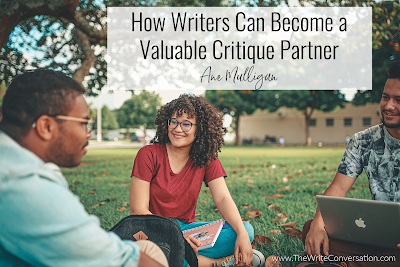Remember that old TV show Truth or Consequences? If the contestant couldn't guess the truth about the guest, he had to suffer the consequences and some of those consequences were hysterical.
But what about in writing? If we submit our manuscripts without any critique or editing, what consequences do we face? Most obvious would be the manuscript would be rejected. If an author chooses to Indy publish, it's vital to sales to have your manuscript professionally edited.
I have two critique partners now who have been with me for several years. I wouldn't think of submitting my manuscript to my publisher without them first critiquing it.
My first venture into critique groups was a Christian online one. I soon gravitated to a few people whose writing I liked. They were kind in their critiques but adamant about me learning the basics of good writing. I was a raw newbie but smart enough to know I knew nothing (the best advice I got at my first writing conference was: develop rhino skin. I look at critiques as advice to make my writing better not an attack on me.
Later, several of us split off from the first group and formed our own private critique group. We made a covenant to always be honest and tough. That doesn't mean unkind—quite the opposite, really. It means speaking truth in love.
"If I could speak all the languages of the earth and angels, but didn't love others, I would only be a noisy gong or a clanging cymbal." 1 Corinthians 13:1 NLT
What does that have to do with critiques?
Let me paraphrase it: "If I could speak all the writing rules and quote the Chicago Manual of Style, but don't correct my critique partners, I would only be an unhelpful know-it-all."
When we don't offer a truthful critique—if we tell our critique partners (CPs) their work is wonderful, when in reality, it needs work, we aren't helping them. God has charged us to "As iron sharpens iron, so a CP shapens a CP." Prov 27:17, NLT paraphrased. If I don't tell my CP when something jumps out at me as wrong or uncharacteristic, I'm not helping her. I'm letting her submit something less that her best. And that is not what God expects of me.
As a Christian and a writer, I'm also called to critique as "unto the Lord," which means putting on an editor's hat and digging deep to help my CPs be her best. And I expect the same from them.
Your critique partners can become your best friends, ones you know care enough to tell you the truth.I never want a pat on the head and told, "You're a good writer." I want to be pushed and prodded to become a great writer and always do my very best…as unto the Lord.
Are YOU a critiquer of consequence? Are your critiques offered to make your CP better? Have they become so good you now have to read their chapters three times to find anything to suggest?
TWEETABLE
Ane Mulligan lives life from a director’s chair, both in theatre and at her desk creating novels. Entranced with story by age three, at five, she saw PETER PAN onstage and was struck with a fever from which she never recovered—stage fever. One day, her passions collided, and an award-winning, bestselling novelist immerged. She believes chocolate and coffee are two of the four major food groups and lives in Sugar Hill, GA, with her artist husband and a rascally Rottweiler. Find Ane on her website, Amazon Author page, Facebook, Instagram, Pinterest, The Write Conversation, and Blue Ridge Conference Blog.


Ane,
ReplyDeleteThank you for this article about honest critiques. It's nolt just for critiques but I find that occasionally as an editor I muster the courage to do it. Last week I spoke with a novelist who had a 170,000 word fantasy novel (self-published). I was interested but gently told him that our fiction limit was 100,000 words and that few people ere reading 500 page novels. If he wanted to sell more books I suggested he split it into two stories.
From my decades in publishing, we rarely get such feedback as writers. It is much easier to send a rejection note saying it was not a good fit. I was trying to walk a different course and serve that author--if he listened.
Terry
author of Book Proposals That $ell, 21 Secrets To Speed Your Success (Revised Edition)
Excellent points.
DeleteThanks, Terry. You told me many years ago to cut a 125K book down. I chopped it down to 80K and never missed a word! A great lesson that I have carried all these years.
DeleteWell said. Got to know the rules, but also when you can break them.
ReplyDeleteAnd then break them with panache!!
DeleteSuch good advice, Ane. My husband and I critique each other's work. (We're very straightforward), but we also belong to a small critique group that meets monthly to review the work of one of the members. Constructive criticism has made us all better writers.
ReplyDeleteAbsolutely!!
DeleteGreat info! I love my Word Weavers critique group, and we've become dear friends also!
ReplyDeleteAnd I'm also in word Weavers group, but more to give than receive. I write multiple chapters a week and have deadlines, so my other group is best for me. But starting out, I love Word Weavers. You do see how first impressions are.
DeleteSo thankful to ACFW for helping form my critique group. We've all learned so much from one another! I too would not submit a manuscript without running it through my incredible group! Thanks for sharing!
ReplyDelete